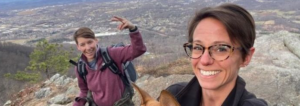9 Remarkable Nurses to Honor AANHPI Heritage Month
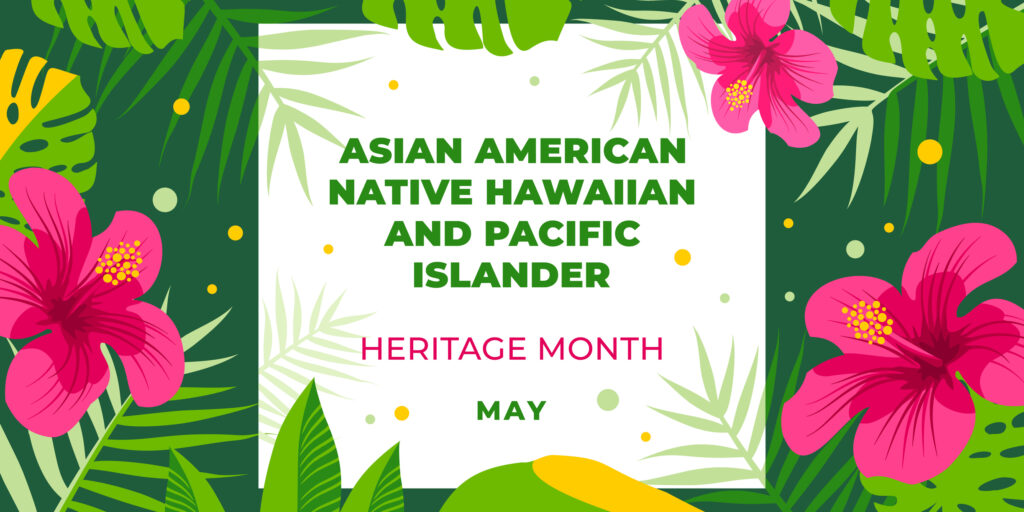
May is Asian American, Native Hawaiian, and Pacific Islander (AANHPI) Heritage Month, and the 2024 theme is Advancing Leaders Through Innovation, a culmination of the 2021-2024 series in Advancing Leaders.”
The Federal Asian Pacific American Council (FAPAC) announced this year’s theme in a recent press release: “‘Advancing Leaders Through Innovation’ pays homage to the visionaries and trailblazers who have shaped our AANHPI history and continue to influence our collective future. Innovation, resilience, and a pioneering spirit are cornerstones of American leadership. AANHPI leaders have made lasting contributions to our Nation’s economic prosperity, technological advancements, and social/political change through their ingenuity and creativity while navigating significant cultural and systemic barriers.”
In honor of this year’s theme, here are nine remarkable nurses who have significantly contributed to the nursing field and embody the spirit of leadership through innovation.
9 Nurses to Know for 2024 AANHPI Heritage Month
Mary Yone Akita
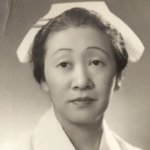
Mary Yone Akita, one of the earliest Japanese American nurses, significantly contributed to healthcare, particularly for Issei (first-generation) women in Los Angeles. In the 1910s, she transformed her home into a maternity hospital, providing much-needed care amidst racial discrimination and anti-immigration tensions. Collaborating with midwives and physicians, Akita addressed the limited healthcare access faced by Japanese individuals. Despite challenges such as funding and land ownership legislation, her efforts expanded into the Japanese Hospital of Southern California, aiming to improve healthcare accessibility for the community.
During World War II, Akita endured the atrocities of internment camps, where she continued to provide medical care despite neglect from authorities. Documenting her experiences in a personal diary, she exemplified resilience in the face of adversity. After the war, Akita’s legacy continued, highlighting the importance of recognizing the invaluable contributions of nurses like her in American nursing, public health, and healthcare. Her story underscores the perseverance and dedication of nurses who transcend barriers to ensure quality care for all.
Mary Frances Ohena
Mary Frances Oneha dedicated two decades to addressing health issues within Native Hawaiian communities. She obtained an MSN from the University of Washington and made history as the first Native Hawaiian to earn a Ph.D. Subsequently, in 2012, she assumed the role of chief executive officer at the Waimānalo Health Center.
Oneha’s contributions extend beyond her executive role; she serves on the Institutional Review Board of the Association of Asian Pacific Community Health Organizations. In 2013, she was honored as an AAPI Woman Champion of Change by the White House and recognized as an American Academy of Nursing fellow.
Fidel Lim
Fidel Lim earned his Bachelor of Science in Nursing from Far Eastern University, Manila, Philippines, at 19. His journey led him to the United States during the HIV/AIDS epidemic, where he began his nursing career at a New York City hospital. Over the years, he obtained his Master’s in Nursing Education from New York University and a Doctor of Nursing Practice from Northeastern University in Boston. Dr. Lim has since balanced clinical practice with academia, serving as a critical care nurse and a clinical associate professor at New York University Rory Meyers College of Nursing.
As a nurse educator, Dr. Lim enriches nursing education by integrating the arts and humanities into the curriculum, fostering a holistic approach to learning. He serves as a faculty advisor to student groups and is a founding member of the NYC American Association for Men in Nursing, advocating for men’s health and representation in the nursing profession.
Dr. Lim’s commitment to education excellence has been recognized through various accolades and publications, demonstrating his impact on shaping the future of nursing practice and education.
Rose Lim Luey
Rose Lim Luey’s nursing career spanned an impressive 65 years, marked by significant public health and disaster nursing contributions. As one of the first Chinese American students at Samuel Merritt Hospital School of Nursing, she blazed a trail for future generations.
Luey served as a bilingual public health nurse, co-founding Asian Health Services and dedicating two decades to disaster nursing with the American Red Cross. She played a vital role in assisting Vietnamese arrivals during the end of the Vietnam War and managed Alameda County’s prenatal Hepatitis B vaccination program.
Even after retirement, Luey remained actively involved in nursing by volunteering and establishing endowed scholarships, leaving a lasting impact on the profession and her community.
Anastacia Giron-Tupas
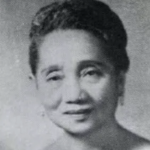
Anastacia Giron-Tupas was born on August 24, 1890, in Laoag, Ilocos Norte. She devoted her life to elevating nursing both in the Philippines and internationally. Recognized as the “Dean of Philippine Nursing,” she passionately believed in nurses’ transformative power to enhance public welfare.
Giron-Tupas was instrumental in establishing the University of Pennsylvania School of Public Health Nursing as a leading institution, pioneering the development of the first Bachelor of Science in Nursing (BSN) curriculum. Throughout her distinguished career, she championed nursing and advocated for interdisciplinary education.
Mooie Eng
Mooie Eng, born in 1916 in Guangdong, China, immigrated to the U.S. and graduated from Ohio State in 1941. She became the first Chinese RN at the Community Service Society (CSS) in New York City, established in 1843 to address poverty. At CSS, she pioneered healthcare access for the Chinese American community, aiding post-WWII “war brides” and co-founding the Chinatown Planning Council in the 1960s.
Eng’s legacy lives on through historical documents and bilingual health materials donated to the Museum of Chinese in America in 1994.
Li Hong
Li Hong earned her MSN in nursing informatics from the University of Texas at Arlington. In 2019, she received the prestigious Florence Nightingale Medal, making her the sole Chinese recipient among 29 nurses globally. This accolade recognizes exceptional service and innovation in public health or nursing education.
Additionally, Li Hong is an American Academy of Nursing fellow and serves as the Clinical Research Manager at the University of Texas Southwestern Medical Center.
Xu (Philip) Yu
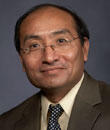
Yu Xu, also known as Philip, had a multifaceted career in academia and nursing. He began his education in China before pursuing advanced degrees in the United States. After completing a PhD program at the State University of New York, he obtained an Associate in Nursing and a Master’s in Community and Public Health Nursing. Dr. Xu furthered his expertise through a post-doctoral fellowship in nursing research methods at the University of Connecticut, becoming a certified nurse educator and a certified transcultural nurse along the way.
Recognized for his prolific research, Dr. Xu’s work primarily centered on the transition and integration of international nurses into the U.S. healthcare system, focusing on Asian nurses. He held various leadership roles, including founding PhD Coordinator for the School of Nursing at the University of Nevada, Las Vegas, and president of the Asian American Pacific Islander Nurses Association. His legacy lives on through his extensive publications, which continue to shape discourse on men in nursing, discrimination, diversity, transcultural communication, and the international nursing workforce.
Maginia Sajise Morales
Maginia Sajise Morales moved to the United States from the Philippines in 1977. Having completed nursing college in her home country, she found employment in the U.S. through a recruiting agency and eventually joined the Army in 1989. Initially serving in a reserve unit general hospital, Morales transitioned to active duty nursing after completing basic and officer training. Her military career took her to various locations, including Germany and Africa, where she treated trauma and burn victims and provided training on basic life support.
In 1995, Morales found herself amidst the conflict in the Balkans, where she witnessed the devastation caused by war. Deployed to Bosnia, her unit faced challenges such as treating cold weather injuries and navigating the dangers of landmines. Despite the difficult conditions, Morales remained dedicated to caring for those in need. After her military service, she continued her contributions to the community through volunteer work with organizations like the Red Cross and the VFW, demonstrating her commitment to service even after retiring from the Army.
An Enduring Legacy and Impact
These are just nine AANHPI nurses who exemplify leadership, advocacy, and patient care within the nursing profession and healthcare. Their contributions span a spectrum of endeavors, from pioneering research and education to championing healthcare access and equity initiatives. By advocating for their patients and communities, these nurses reshaped the landscape of the nursing profession, and their collective impact serves as a testament to the invaluable role of AANHPI nurses in advancing healthcare.
However, many members of the AANHPI healthcare community continue to face discrimination, and the fight for equity and inclusion continues. Recognizing and understanding the contributions made by AANHPI nurses and healthcare leaders helps us shape a more equitable healthcare system, improving healthcare outcomes for all communities, creating more inclusive workplaces, and better opportunities for the AANHPI community.
For more information, resources, and support for AANHPI nurses and healthcare, check out organizations such as the Asian American Pacific Islander Nurse Association, Minority Nurse, and the Association of Asian Pacific Community Health Organizations.

